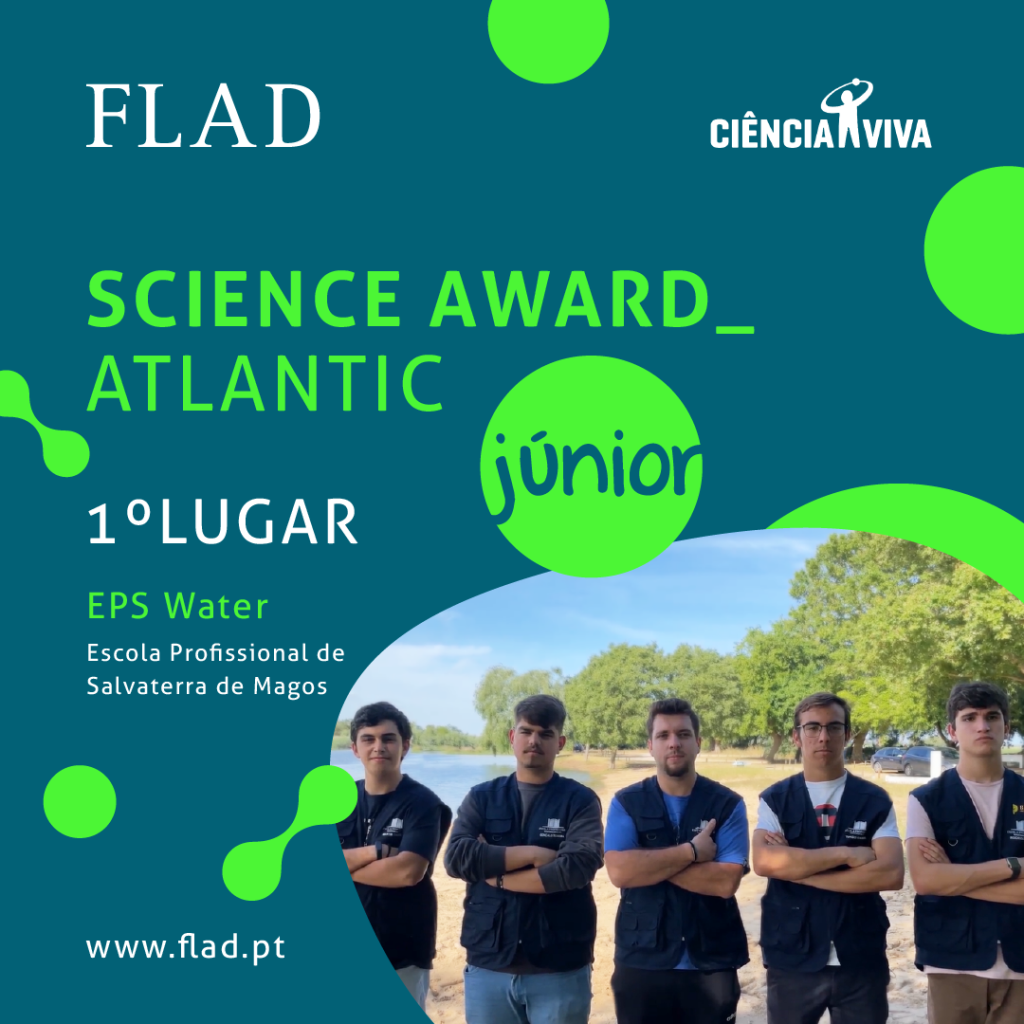The winning team, from the Professional School of Salvaterra de Magos, created a solar-powered surface autonomous vehicle to help preserve and improve the natural conditions of the Tagus River.
The EPSWater (Electronic Power Saving Water) project, developed by five students of the Professional Course of Electronics Technician, Automation and Command of the Professional School of Salvaterra de Magos, is the winner of the 1st Edition of the FLAD Atlantic Junior Award, launched by FLAD and Ciência Viva. This award, aimed at secondary and professionals schools across the country, distinguishes scientific projects focused on the Atlantic and the sustainable use of their resources.
The winning project, which stood out from a set of 15 finalists, involved the creation of a solar-powered surface autonomous vehicle to measure pH, salinity, temperature and transparency parameters of the Tagus River water. The objective is to contribute to the preservation and improvement of its natural conditions and to a preventive intervention in the Ribatejo plains. The prototype is camouflaged and not tripable to confuse with the landscape and contribute to the preservation of the natural environment, namely the habitat of the species, being equipped with a GPS system, monitored at long distance. The school of the five students, guided by Professor José Maria Gonçalves Carvalho, will receive 2,000 euros in the form of equipment and technological materials. The winning team will also be awarded a trip to Boston, USA, where they will visit places of scientific interest.

Innovative leather, aquatic robot and monitoring system
In 2nd place was the project “CurtAlgas”, the team of the Agrupamento de Escolas de Alcanena, which aims to produce innovative leather based on algae extracts, as an alternative to the environmental impact of pollution generated by the tannery industry, the main economic activity of the region. The cash value of the prize is 2,000 euros.
The 3rd place, in ex-aequo, was won by the AmazingROVTeam project, from the School of New Technologies of the Azores, and by OJ(Clean)Power, from the Agrupamento de Escolas Oliveira Júnior (São João Madeira), who will share the prize of 1,500 euros. AmazingROVTeam aims to create an integrated monitoring system with three components to collect images, temperature, salinity and pH underwater. OJ(Clean)Power is an aquatic robot for recording the physical and chemical characteristics of Atlantic water, in real time, identifying potential delibrios.
Elsa Henriques, FLAD Administrator and member of the jury, underlines the quality of the projects received, stating:
“The teams identified real problems and sought technological solutions in clear interaction with the surrounding community, applied previously acquired knowledge and developed new technical skills to build and validate the prototypes built.”
Ana Noronha, Executive Director of Ciência Viva, reinforces the importance of the Award:
“We hope with this contest to begin to awaken the taste for engineering for the monitoring and sustainable use of the ocean and remind young people that the Atlantic, despite geographically separating the continents, creates bridges between the communities living in the Atlantic basin. The Junior Atlantic Award will be a contribution to the strengthening of these bridges.”
Congratulations to all for the excellent projects!
Related Posts
March 25, 2025
Note of Condolence – Charles Buchanan (1934-2025)
March 24, 2025
Applications Open: FLAD/Saab Visiting Professor at UMass Lowell 2026
Portuguese professors can apply to…
March 17, 2025
FCT and FLAD sign new protocols with the University of California
The objective is to promote academic…


